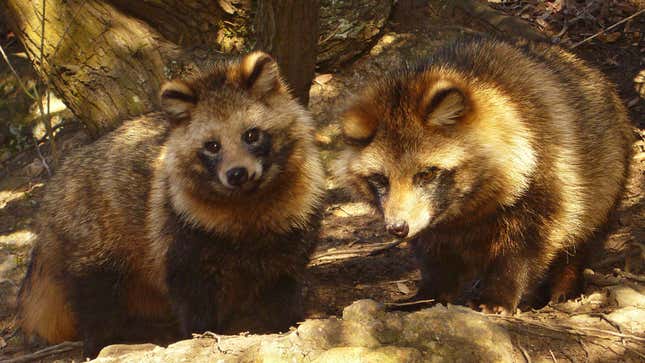
The raccoonish-looking critter above is in fact a member of the Canidae family, along with foxes, coyotes and the domestic dog. But last week the US Federal Trade Commission ruled that fur manufacturers can continue to label the fur of Nyctereutes procyonoides, which is native to Japan, eastern Siberia, China, Vietnam and the Korean peninsula, as “Asiatic raccoon.”
In the US, the mammal’s identity has been fraught for years. The Humane Society, which wants as few animals turned into fur as possible, had been pressing for the pelt—commonly used as hood lining for parkas—to be called “raccoon dog,” so as to deter dog-lovers. (Though some dog owners seem quite happy making sweaters out of fur from their pets.) It has variously been billed as Finn raccoon, raccoon dog and even”faux,” which it most decidedly is not. In Japan, it’s called tanuki, and folklore says the creature has supernatural shape-shifting powers.

But the FTC ruling means it will henceforth be known as Asiatic raccoon in the US, which is bad news for the creatures, because their fur is likely to keep showing up as trims and full garments. Plush, pricey and candy-colored pelts were all over the autumn/winter 2014 runways, and are likely to be knocked off by less expensive labels. Like North American raccoon—to which it’s unrelated—and muskrat, Asiatic raccoon makes a relatively cheap alternative. And thanks to the FTC, its canine provenance will no longer trouble the conscience of American consumers.